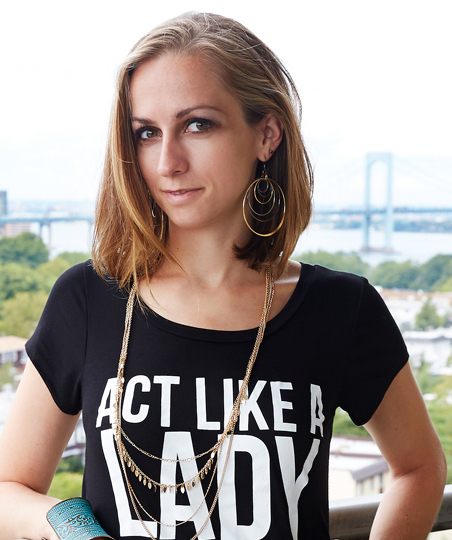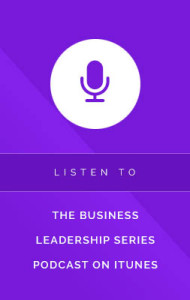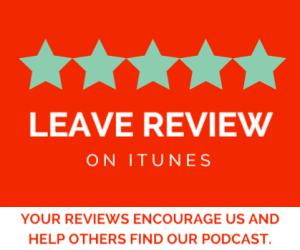BLS interview with Suzanne Paulinksi, founder of The Rock/Star Advocate, Part 1

Derek talks to Suzanne Paulinski, founder of The Rock/Star Advocate. Suzanne talks about staying in your lane, not beating yourself up comparing what others are doing, and how to meet your customers where they are so that they will engage with your product in a meaningful way.
Learn more at www.therockstaradvocate.com
Derek: Welcome to the Business Leadership Series, where our goal is to inspire you to become the best leader that you can be, I’m your host Derek Champagne. I’m excited about our guest today. We have Suzanne Paulinski; she is a CEO at The Rockstar Advocate. Suzanne, thanks for being our guest today.
Suzanne: Thanks so much for having me.
Derek: So I want to hear a little bit about your background. My background is in music as well before starting this agency and for many years, that was my heart and soul of what I did and still do as a hobby. It would have been great to have your service back in my day. You know, social media was not as prominent, it was just becoming prominent when I was playing. So tell me about your background and about how you got to where you are today.
Suzanne: Sure. So I went to school at Drexel University for music business – it was a brand new major at the time; we were the first graduating class. I studied music law, I studied acoustics and many other things that were tied to the music industry. I really got a full spectrum education there. While I was there, I interned at Atlantic Records, here in New York and after doing that and really working hard at the internship in making some great connections, I graduated early from Drexel and went on to become the Midwest sales coordinator at Astralwerks. It was a subsidiary of EMI and back when Tower Records and Sam Goody and all of that stuff still existed, I ran those accounts for the Midwest region, for Astralwerks.
So that felt really good, being right out of college and being given that responsibility and I also ran their national street team, back when there were also street teams. Labels where there would be people that would run out and put up posters and make sure the CDs were displayed prominently in the retails stores, in their section. That was a lot of fun, I actually enjoyed that more than dealing with the accounts on the sales side of things. I decided about a year in that it really wasn’t my thing, that I didn’t like sales and I wanted to be more on the creative end. At that time, my college roommate and I were kind of creating our own record label, our own independent label and we wanted to see where that went.
So I left Astralwerks, which was kind of a scary move, I knew friends of mine and so many others were just dying to get into a label and dying to have their own office and work in that type of environment but it was just a lot different than I thought it would be. So I wanted to take my own crack at it and see if I could create a different type of business, that my roommate and I had wanted to create. So we did that for a little while and realized we took on a lot more than we realized in terms of running a label at 22 years old. It was interesting – we did sign an act in Philly and we definitely learned a lot but we realized we didn’t want to be managers. We didn’t want to be people running careers so minutely. We wanted more of putting the power in the artists, we didn’t want to feel like Svengali’s or that we were puppeteers or controlling or any of that stuff. It made us very uncomfortable.
So we thought, why not start teaching artists how to run businesses themselves? So we began writing their bios and doing their press kits for them and coming up with social media plans for them and stuff like that. That went on for a few years and then we decided we both had different views of where we wanted to take things and we amicably split. Then I felt like I needed to regroup, so I went back and I got my masters in psychology; it was something that I’d always wanted to do. After really getting immersed in that and learning about the importance of mindset and learning about the importance of a clear vision, I realized that is really lacking in the industry. That part – as much as I love writing bios and doing stuff, that’s really not – there are plenty of people that can write bios and there’s not enough teaching artists how to handle it all.
That’s really – once I’d finished my masters, I really was like, “Okay, this is really what I love to do and this is how I’m going to combine everything that I’ve learned in these last 10 or 12 years.” That was a few years ago and now this is what I do and I love it. I still write bios once in a while and press kits but the crux of it is, “Here’s all the information you can gather on the internet and I’m going to teach you how to digest it and how to apply it to your own situation.”
Derek: Well, that’s really exciting. So for me, my early days of running this agency but my early days—and I write about it in my book—talk about my days of being a street team promoter and playing in bands on the Sunset Strip in Hollywood back in the early 2000s. And I learned a lot from them with boots on the ground and some of that grass roots type marketing that I still take with me today and even apply it to client campaigns that are outside of the industry. What are some of the kind of things you took away from your background that you feel you draw from, still even to this day, that stand out to you?
Suzanne: Yes, great question. What I loved so much about working with the street team at Astralwerks, was when I came on, they were very disheartened. I guess whoever was there before me, kind of didn’t appreciate them or had too much on their plate, that they didn’t make them a priority and I really – what I learned there and why it was one of my favorite parts of being there, was really just showing them how much the label appreciated their work because they were going out there on a ground level and really contacting fans and speaking on our behalf and representing us on a one to one level. The funny thing about that, is even though we don’t have accounts anymore, like Tower Records and Sam Goody’s, we have Facebook and Twitter and Instagram. So I still use that same mentality when I teach artists how to talk to their fans.
You know, I mean appreciate them, your street team is your core fan base, those are those fans that are going to go out and say, “Hey, listen, they’re playing tonight. You have to come check out this band.” That’s your street team and sending them a free t shirt in the mail and surprising them or calling them out on social media and letting them know how amazing they are, that stuff really goes such a long way. The morale was so different by the end of that year, with that street team. Just simple things like spotlighting one of them each week in the email that went out to the whole team. So spotlighting a fan in your newsletter or sharing their way to status to your followers and then thanking them for their time, something as small as that really goes a long way. I think that’s really what I’ve taken – is that human connection. It’s so important and it doesn’t take a whole lot of effort, it just takes a little bit of thinking and prioritizing.
Derek: Yes, and seeing that appreciation. We were just presenting a marketing plan a couple of hours ago to a client and talking about what we call brand ambassadors. It’s not in the music industry but I think it applies to so many different niches as well beyond music. Where when you have those that sing the praises and that are volunteers for you and they’re – I mean, they’re brand ambassadors, they’re your street team. It’s important to recognize them and not take them for granted and look at what’s important to them and highlight it. So I think that’s a great lesson to learn.
Suzanne: Yes, absolutely.
Derek: It looks like for you, your timeline – I mean, you were in the music industry in the early 2000’s at some point as well, is that correct?
Suzanne: Yes.
Derek: So – and I was as well stepped out of it in mid-2006 I believe and so when the big emergence of social media happened, what changes have you seen in the industry? For me, I was in California in 2000 I believe and Capitol Records was – the Capitol Records, there was a big tower there and the landmark in Hollywood. We had those labels that you’re talking about, the music stores of Sam Goodys and all of those, which are not there now. With the emergence of technology and social media and platforms and crowdsourcing, just tell me about how some of the social media and advancements of technology have changed and you’ve continued to stay with this. I’m really curious about your take on it for the music industry.
Suzanne: Yes, it’s been really interesting. I left Astralwerks in 2006 and as I was running my business with my roommate, I actually was working as a paralegal, trying to learn. You know, we wrote our own contracts and trying to learn all that stuff and so it was interesting, kind of being on the outside and I felt like I had one foot still in it and one foot out of it. Actually, also at that same time, my roommate went to work for a social media start up and was doing all of their social media managing. She was learning all about – Twitter was just coming out and the importance of hash tags and I learned so much from her, what she learned at her day job. Like our rule was, don’t take a job unless it’s going to benefit our company. So she handled that aspect and I handled the legal aspect and what I learned about the changeover was that you could no longer just spend your year still working on your album and then taking the time to get the marketing all together and then putting it out and people just see the finished product.
The real goal was sharing your journey because the goal should no longer – at least I hope ours is- is realizing no longer just to get signed. The goal is to sell music and the way you do that is building your fan base. Don’t forget that the fans are the reason and you don’t need a label anymore to do that. You don’t need a label to get your CDs into a Sam Goody, you just need to get yourself up on the internet and sell it. And the way to do that is to make everybody a part of your journey. So always tell artists, the way that it’s changed, it’s kind of like the way TV has changed, you know, with the emergence of reality TV. These celebrities have come out of sharing their story online, for all to see. That’s the same thing that artists need to be doing is – there’s no reason you can’t take a photo with your phone or take a quick video of what you’re doing with your day and sharing that with people. So that they see what this journey is like because that’s going to set yourself apart from the other singer and the other songwriter and the other rapper.
With the emergence of social media, so many more musicians have come out of the woodwork because they see that they have a chance to do what they’ve always wanted to do and instead of letting that frighten you, let that empower you and let yourself stand out by just- just be you, just showcase you, be a little bit more vulnerable and it will pay off.
Derek: That’s good advice. Yes, I remember when the labels had all the power and that was again during my journey. For us, I remember with management, our agents were sitting down and making an intentional decision. Do we hit the road and grass roots this or do we push for the label to? So it was all label showcases and I mean, it was just – I’ve lived that world and it’s changed so much. I’m the old guy, I feel like the old guy now who’s saying, “Man, I wish they had that when we were in the heart of it.” You know, our tools for Facebook had just started and we had Craig’s List and boots on the ground and that’s what you did. So we’ve kept up with the changes but in a different way, so that’s really cool to hear how it’s changed. Have you worked at all with some crowdsourcing and seen how powerful that’ been for bands getting funding?
Suzanne: Yes, I also offer – on my website, I have what I call a Rock Sources page and its just basically free resources that I have created [with] templates and workbooks and so forth. One of them is a crowdfunding workbook that I’ve used for a lot of my clients and what that really is, is the key, in my opinion, to doing a successful crowdfunding, is to be super clear on your mission. Like why are you doing this? I think it doesn’t work for bands who just get up and say, “Help me raise money for my album.” Well why? What is it- why is this album so meaningful to you? What is it going to provide the listeners?
Also, a lot of the things that I also help artists realize – one of them recently came to me with their crowdfunding and they said, “Well, tell me what you think.” I looked at their rewards and I thought, “Okay, you want them to donate $15 for a signed CD” and honestly, I don’t know what they would do with that. I mean, no offense to the artist, they’re a wonderful talentedl artist. They have so much to give but to somebody that doesn’t really know you, you’re asking them for $15 for a signature and they don’t know why that’s an investment.
I think if you give rewards in a sense of, “What can I give them?” make it an experience. I think that’s really the point so that the reward doesn’t even necessarily have to be connected to your album but the reward could be, you get to choose – if you did want to connect with your album, you could say, “You get to choose my next single and you get to part of the board that has the okay on the final edits of my music video.” I mean, get them involved in an actual experience, rather than just say, “Well, I’ll sign a copy of your CD,” that they’re probably not going to use because they don’t have a CD player anymore.
So it’s all of that, don’t make it about you and what you think people should value because artists are going to think, “Well I’m going to be famous one day and that signature’s going to be worth something.” Yes, that might be true and that’s valuable in your mind but for somebody that is going to take a chance on you for the first time, what can make them feel really cool? Working at their 9 to 5 in an office all day, what could really get them excited? So think there and I think that’s really what I work with artists on, is coming from a place of gratitude, coming from a place of making that fan feel like they matter.
Derek: Yes, that goes a long way, that’s good input. I couldn’t agree with you more, fans like to be part of helping the – we like the rockstar, who doesn’t like to see a rockstar? But we also like to feel like we’re part of helping them get to that journey and that’s why you see shows like American Idol and The Voice and all these that are so wildly popular and get voted on; is people feel like they’re having a say in it and that’s a fun feeling for the fans to have. That’s why you sometimes see fans turn on their audience – turn on their band when they think they made it big and “sell out” but really, they helped them to get to that level of success. So I agree on making an emotional connection. I was talking on a podcast a few days ago and we talked about the ‘why’ and they said before you do anything else, answer ‘why’. Put yourself in their shoes and why would it matter to them? I think when you do that, that makes a big difference, that’s, I think, exactly what you’re saying and make that connection of what matters to them and why they would care.
Suzanne: Right and I think she ended up making her mission about her music, the client that I was speaking about. Her music was empowering and it was all about accepting the body that you have, accepting the part of what you have to offer people. Just embracing yourself and that’s your ‘why’. This is why people want to give because you’re showing them, “Help me make this music and this music is going to empower you.” So it’s not, “Help me make my music so I can get my album done,” it’s, “Help me make my music so I can really provide you with something amazing.”
Derek: And that’s selling so much bigger too because we can all connect with a song and we all have our favorite songs but whenever you can connect with an artist and something that’s about their story that’s different. That makes you connect with them more and want to consume and absorb more of their content because of who they are.



